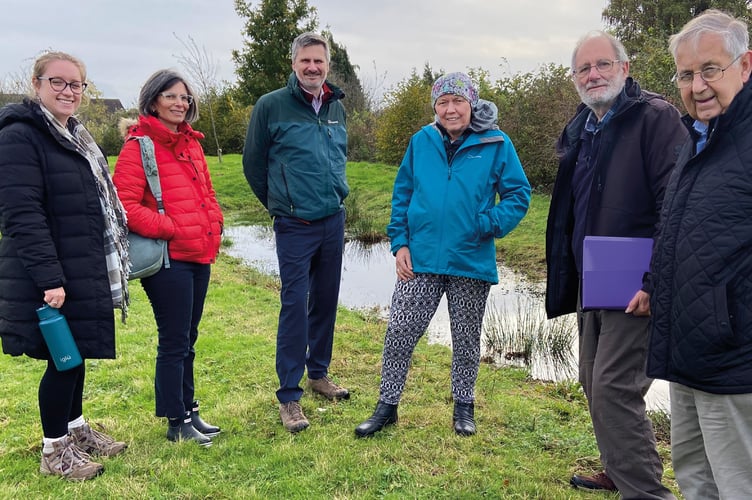LOCAL councils are being supported to make their towns and parishes more resilient to the impacts of climate change through a new collaborative project.
Nature-based solutions such as planting trees to reduce rainfall run-off or to help keep urban areas cooler are measures residents could see implemented as part of the Forest Council-led ‘adaptations’ project.
The first of its kind to be launched in Gloucestershire, the project aims to help towns and parishes explore what impact a rise in global temperatures could have on their communities.
Cinderford, Coleford, Lydney and Newent Town Councils will be supported to develop action plans that pinpoint interventions which can be incorporated into their Neighbourhood Development Plans, regeneration plans and climate change strategies based on the local risks identified.
Specifically, the plans will focus on how land and the built environment can be adapted to protect communities, businesses and wildlife and create neighbourhoods resilient to the impacts of a changing climate.
Councillor Chris McFarling, Cabinet Member for Climate Emergency at Forest of Dean District Council, said: “While it’s essential we do as much as we can locally to help prevent climate change, we must also start adapting to a different future climate.
“For our district, changes will include an increased chance of warmer, wetter winters and hotter, drier summers, increases in the intensity of short-period rainfall events, and increased flood risk in all seasons.
“Record breaking hot summers and drought conditions are also expected to be more common.
“Predicting the exact changes we will see is difficult, given the complexity of our climate, but we are using the latest accepted science to help prepare ourselves.
“This project marks the start of an on-going focus on adaptation in the district.”
Councillor Melanie Getgood, Coleford Town Council, said: “Humans have changed the climate of the entire planet, and these changes are happening at record speed.
“Whilst we will continue to do what we can to mitigate climate change, we also need to take actions locally in the Forest of Dean to adapt to the changing climate.
“We hope this project will help us identify and address some of the more extreme impacts, such as flooding and drought, as well as the negative impacts on human health.”
The initial assessment stage of the project uses two possible climate scenarios to highlight and rank the risks most likely to be faced locally.
The first scenario uses an increase of 2 degrees Celsius in global average temperatures while the second scenario uses an increase of 4 degrees Celsius.
Details of the action plans will be shared with the public in early spring.
Naure-based solutions to help reduce the risk of flooding, moderate the effects of extreme heat, and make homes fit for a changing climate are just some of the measures that could be considered as part of the action planning process.
In addition to supporting the Forest’s four towns a toolkit is being designed with parish councils to assist them in assessing climate risks and creating adaptation plans.
The UK experienced its warmest year on record in 2022 and preliminary data indicates that 2023 has broken new ground by being the hottest year on record based on global temperatures.
The District Council’s adaptation project has received £24,300 of funding from the Government’s UK Shared Prosperity Fund and is being delivered in partnership with JBA Consulting which is providing technical and facilitation support.





Comments
This article has no comments yet. Be the first to leave a comment.